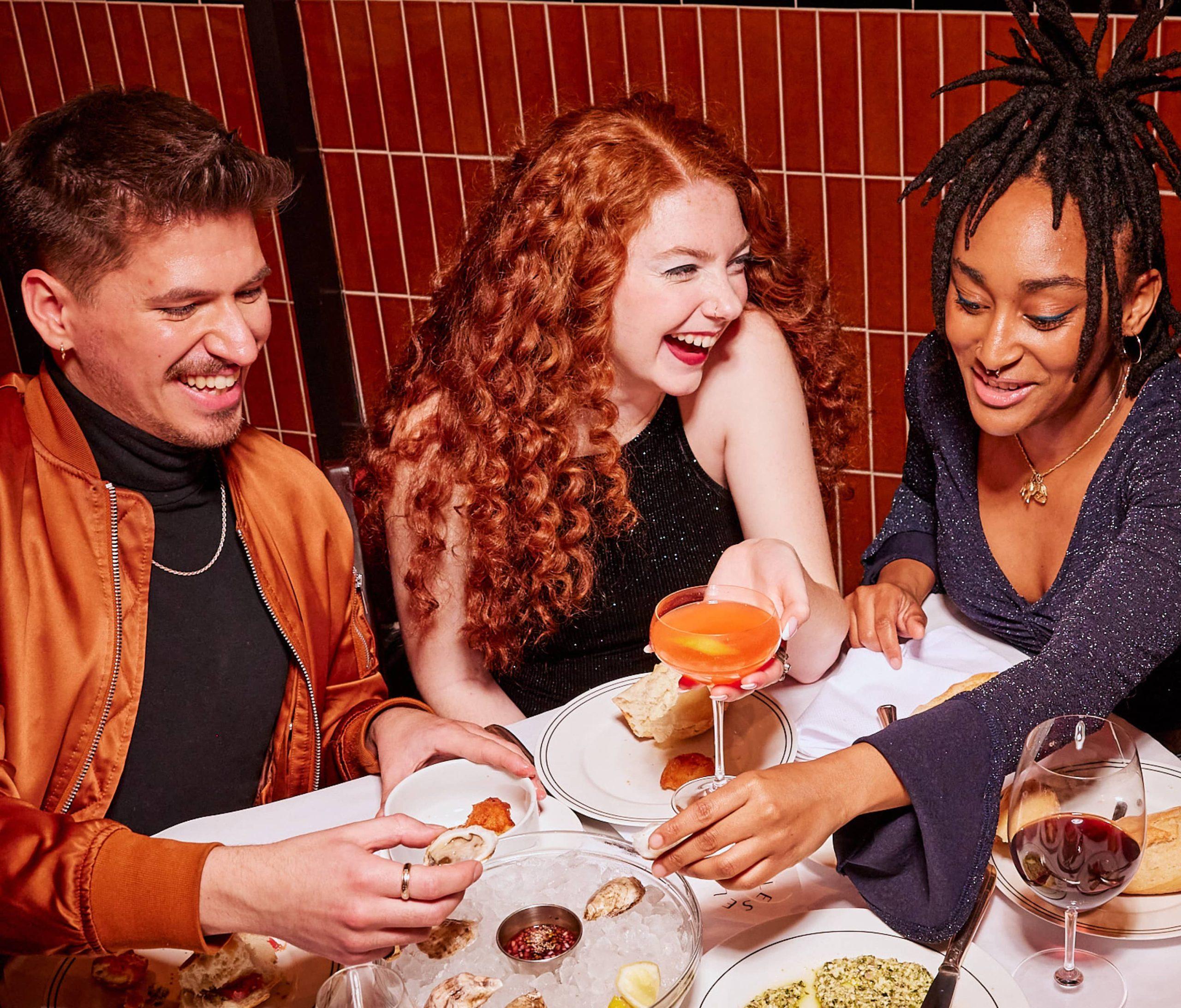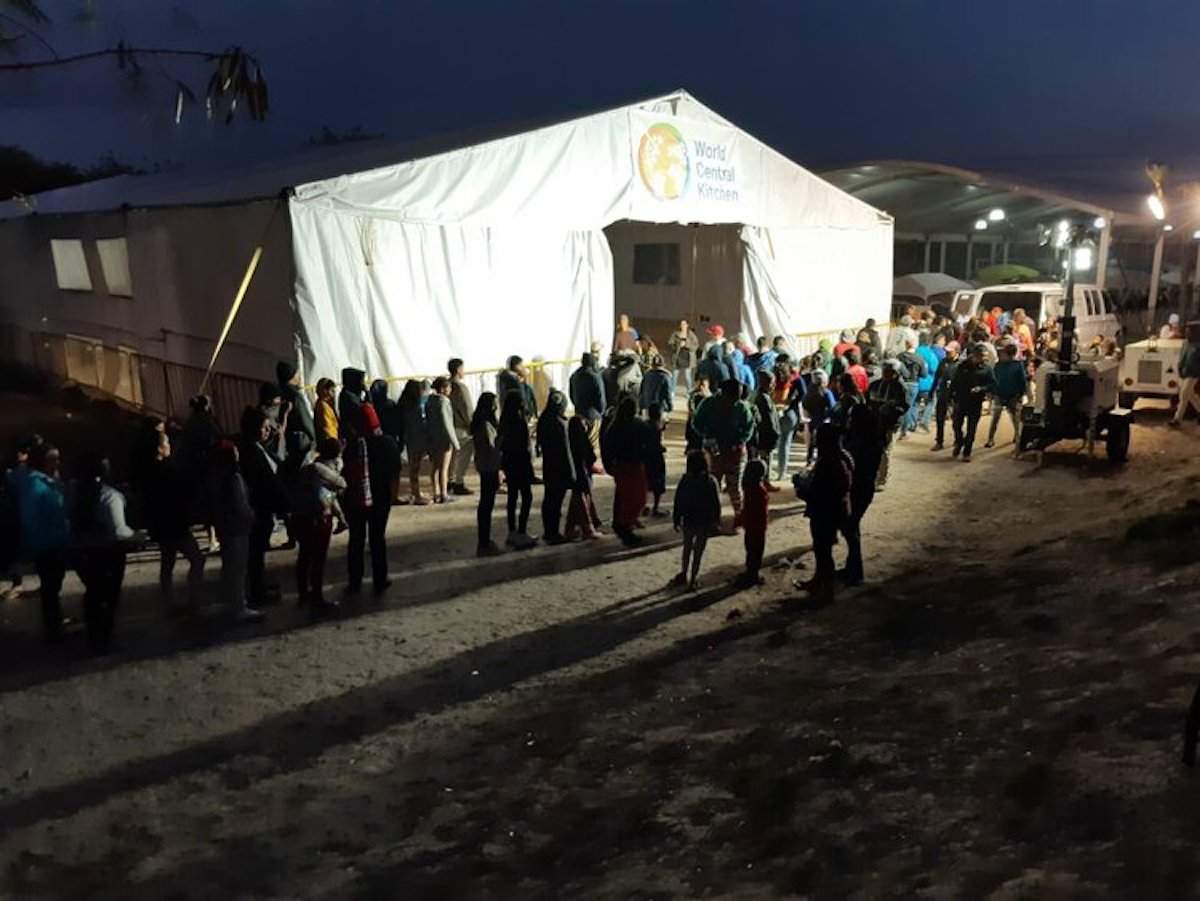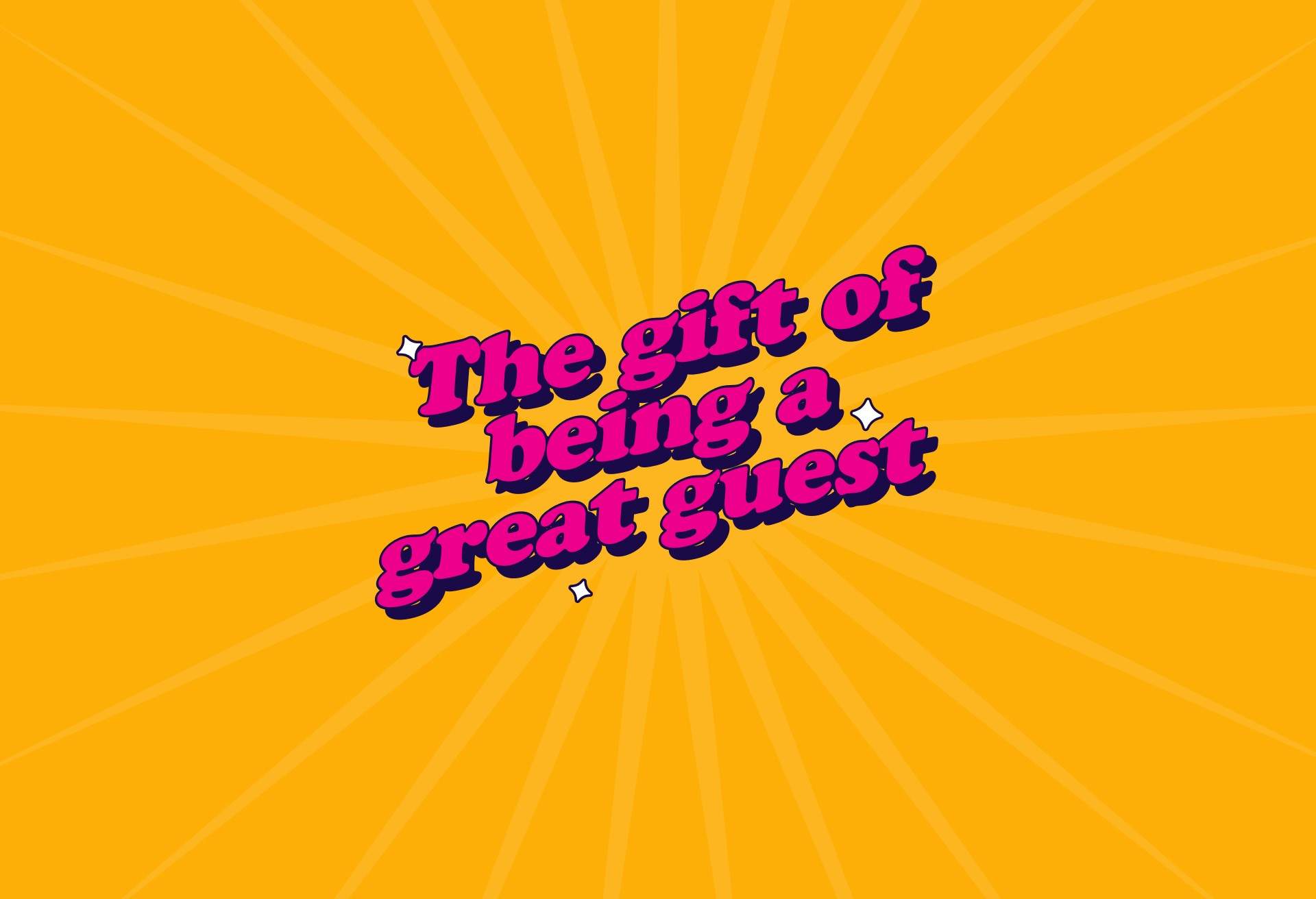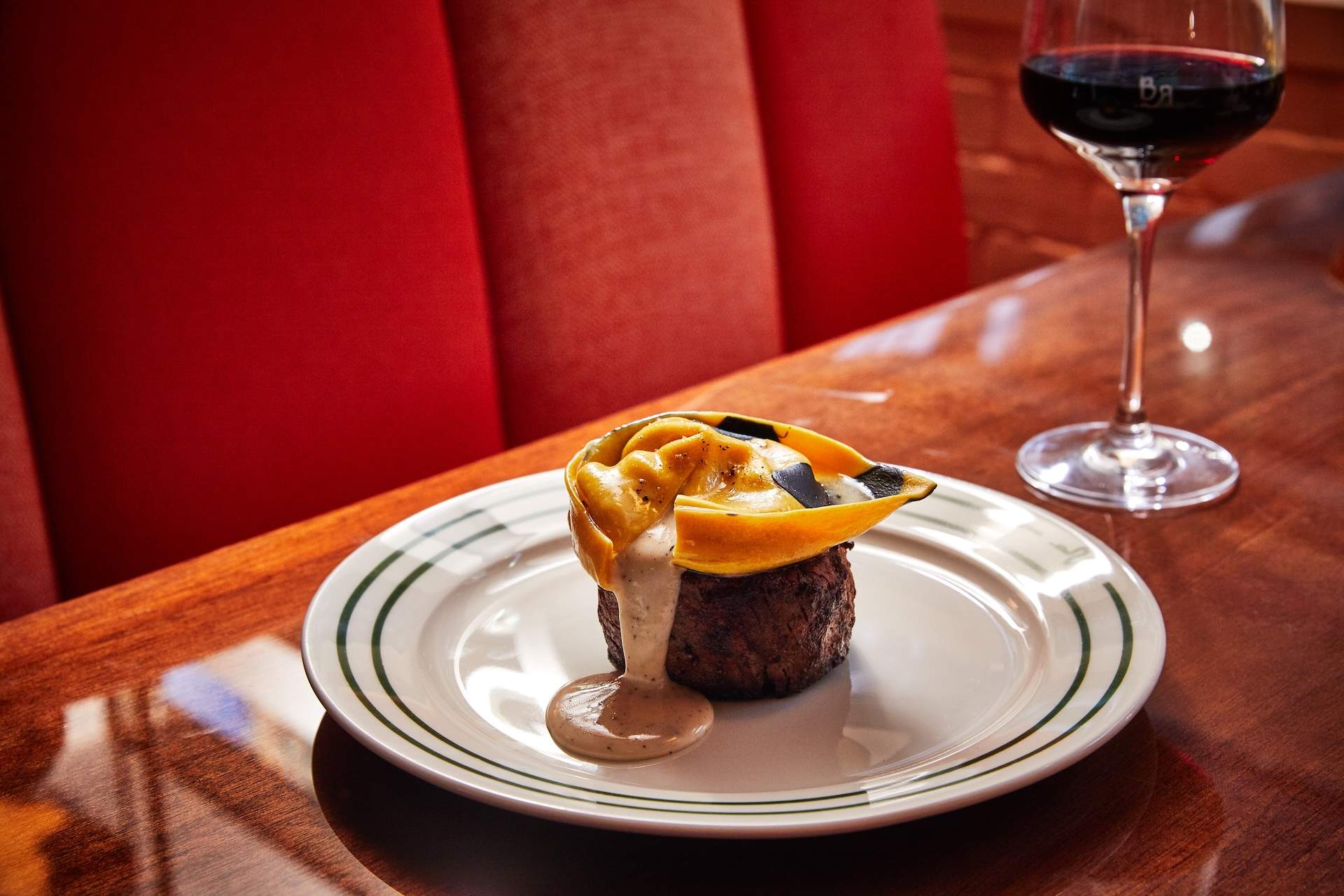When disaster strikes, chefs are often on the frontlines of crisis, cooking and serving people in immediate need. Last year, World Central Kitchen, the disaster relief nonprofit founded by Chef José Andrés, activated in response to 13 disasters from the US-Mexico border to the beaches of Indonesia. The organization engages local chefs and producers to feed the hungry and provide ongoing support to help communities sustain themselves in the long term.
OpenTable is proud to have presented a “Feeding the World” dinner, hosted by Andrés and showcasing dishes from around the globe, at this month’s South Beach Wine and Food Festival. For every ticket purchased, we will make a $10 donation to World Central Kitchen.
Here, we invite you to get involved, too. Read our Q&A with the World Central Kitchen team to learn how they mobilize resources, nurture communities in need, and create connections and infrastructure for healthy food systems in the years to come. Learn about volunteer opportunities here.
First of all, tell us about the work you’re doing in Australia right now. What’s the most urgent need, and how is the team addressing it?
A WCK team has been on the ground in Australia since about January 4th, working with and within hard-hit communities to assess what people and local businesses really need. In many small communities in Victoria and New South Wales, the town’s economy of small cafes and restaurants, already really dependent on a very short, two-month tourist season, have collapsed. We’ve not only partnered with local restaurants to cook from their kitchens and deliver hot meals to firefighters and community members, but have also piloted a program called Feel Good Feeds that gives neighbors a punch card to use at their favorite local spots, for which World Central Kitchen foots the bill. Here are two stories about our ongoing work in Australia.
– Sam Bloch, Director of Field Operations
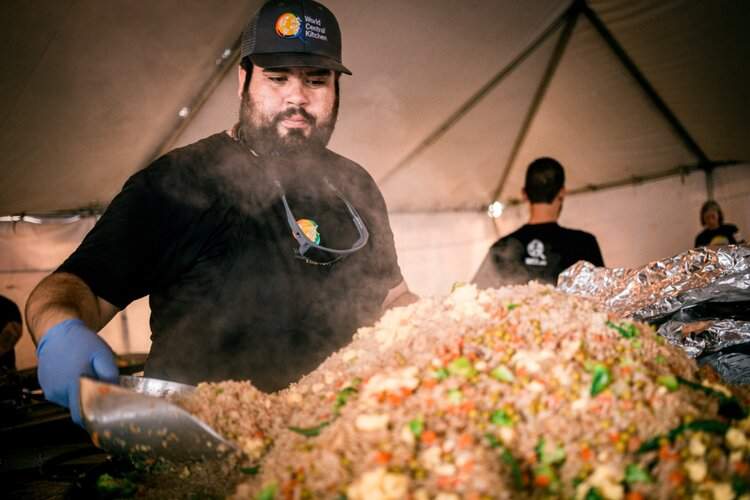
What responsibility or opportunity do chefs have to communities in need after a crisis? How would you encourage other chefs to help?
Chefs and the hospitality community usually see feeding and taking care of people as not just their work but as a huge part of their lives and personalities – if their community is in crisis, the first thing they think to do is to start cooking. When World Central Kitchen deploys to help a community in crisis, one of the very first things we do is connect with local chefs to assess need and available resources and make a plan to get people cooking and serving. Chefs have these answers and know their communities and how to marshal resources better than most anyone. World Central Kitchen has built a network of chefs around the world who stand ready to help their communities when needed. We’re also working on developing a curriculum in disaster-relief cooking that will hopefully be part of more and more chefs’ overall training, so every chef will have this very specific base of knowledge and readiness…just in case.
– Tim Kilcoyne, Director of Chef Operations
Food can be a source of both nourishment and comfort in a crisis, as you have said. What kinds of dishes do you try to serve to communities in need, and what are the logistics or challenges of getting fresh, locally sourced foods to those communities?
All the meals we serve will always be fresh and healthy, but we work closely with the local community to make sure we’re cooking food that people love, meals they may not be able to make or buy for themselves during the crisis. A good example of this recently was fire engine, a corned beef dish traditionally eaten on Sundays in The Bahamas. We mobilized our kitchens across all three islands to make it every Sunday! Logistically, we attack the problem of sourcing from the inside out and seek local vendors, grocers, and suppliers to augment and, if possible, take the place of large wholesale vendors so we can adhere to our mission of helping local economies always. If the disaster has done enough damage to close everything down, we will be sure to work with local providers to get them back online and purchase from them when they do.
– Josh Phelps, Relief Operations Manager

What was your biggest takeaway or most impactful moment after responding to Hurricane Maria and serving millions of meals in Puerto Rico?
The most inspiring and biggest thing about our work after Hurricane Maria was that the people of Puerto Rico were the ones to support and feed their neighbors, their communities, their island. We had 20,000 volunteers work alongside the #ChefsForPuertoRico team, and a vast majority of them were Puerto Rican … it was truly an all-hands effort to recover from the storm.
– Nate Mook, CEO
You’ve emphasized long-term aid to communities in need, not just immediately following a disaster. What does that look like? How do you keep awareness and momentum after press coverage dies down?
From the first moments when WCK responds to a disaster, we’re working within and partnering with the local community and local organizations, and most of our volunteer force are neighbors helping neighbors. So as a community begins to recover and the need for immediate relief lessens, our team and the community have already been discussing and planning how to support recovery for the long term – recovery that is sustainable. Through locally led approaches, our long-term programs advance human and environmental health, offer access to professional culinary training, create jobs, and improve food security for the people we serve.
– Nate Mook, CEO
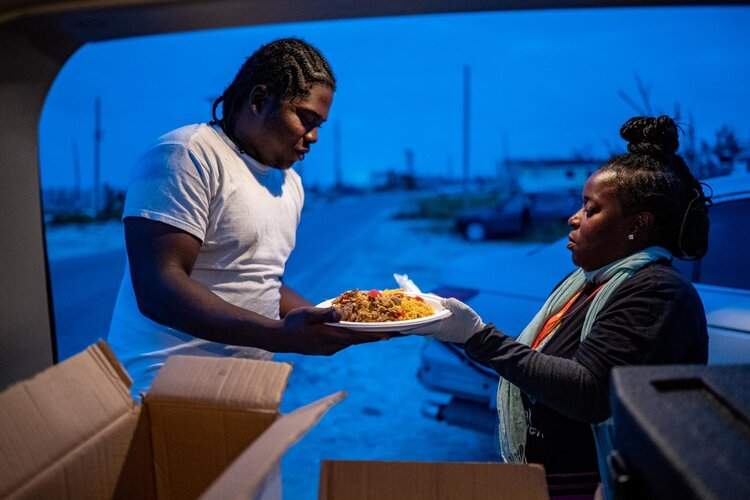
Your Plow to Plate program supports small farmers and local agricultural industries to sustain communities. How can we help more communities get the resources to be self-sustaining?
Our Plow to Plate program thinks and builds for the long term. We aim to increase food security by providing funding, training, and networking opportunities to smallholder farmers and businesses that support local agriculture. We help our grantees contribute to a system-wide increase in food security, sustainability, and resilience against future disasters. We aim to strengthen the overall food economy and affect a lasting decrease in high rates of food imports.
– Alexandra Garcia, Chief Programs Officer
How important are volunteers to the success of WCK, and how can people stay up to date on opportunities if they want to get involved?
The way communities come together to help each other after a disaster and throughout long-term recovery is beautiful and uplifting and inspiring – we could not do what we do without volunteers. People who want to help should follow WCK on social – in the aftermath of a disaster, Twitter and Facebook are vital communications links in sharing where we’re cooking and hot food is available, where people might be stranded and in need of meals, and where we could use volunteers. Need and news are really fluid in the beginning. Register here to volunteer in specific relief locations or on some of the smallholder farms in Puerto Rico that are part of our network as Plow to Plate grantees. Thank you in advance!
– Zomi Frankcom, Relief Administration Manager
Follow World Central Kitchen on Twitter @WCKitchen and Instagram @wckitchen, and visit the website here.
Photo credit: World Central Kitchen
